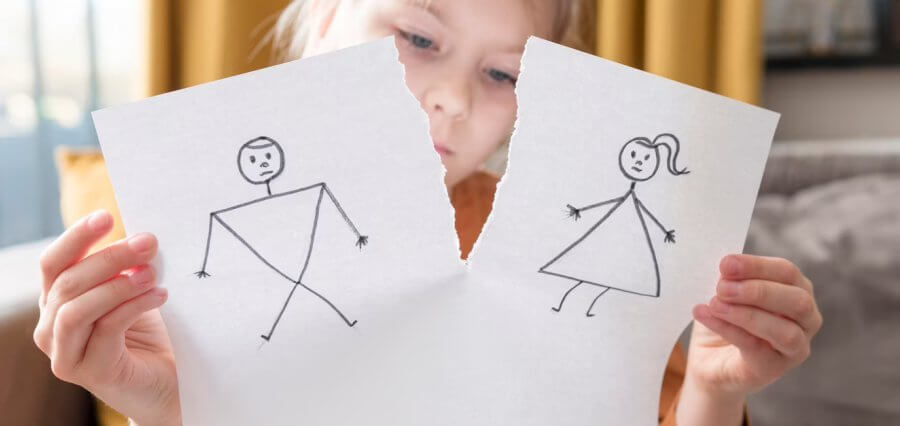When kids experience anxiety, it can be hard for them to feel like they have control. As parents, it’s natural to want to take away our children’s pain, but what if there were ways, we could help our anxious children manage their anxiousness?
Anxiety in children is a common problem and it can be difficult to manage but it’s important to take steps towards helping them cope with their anxiety. With the right support, your child can learn how to manage their anxiousness and lead a normal life.
In this article, I’ll share five ways parents can make a difference for anxious children and help ease their anxieties. These tips are actionable and provide practical tools that you can use in combination with other coping skills and therapies. Read on to learn how you can make a positive difference in your anxious child’s life!
Recognize the Signs of Anxiety in Children
Children can experience anxiety at different levels, and it’s important for parents to be able to recognize when their child is showing signs of anxiety. Common signs of anxiety in children include physical sensations like headaches and stomachache; difficulty sleeping or concentrating; feelings of worry and fear; trouble controlling emotions or dealing with stressful situations; increased irritability; restlessness or agitation; and a reluctance to participate in activities they used to enjoy.
If you notice that your child is displaying any of these symptoms, take time to talk with them about what they are feeling. It can be helpful to keep a journal of the behaviors you are seeing so that you can track them over time, as well as any changes in your child’s behavior that may coincide with the onset of these anxieties. Additionally, speaking with their teacher(s) or school counselor can be invaluable in assessing the situation and offering guidance on how best to support your child.
Provide Reassurance and Affection
Children who experience anxiety need more than words to feel secure. Providing them with reassurance and affection can go a long way to helping them feel understood and supported. It’s important to show them that you are willing to listen and help with whatever worries they may have, no matter how small or large.
There are several ways you can provide comfort and reassurance for anxious children:
- Use calming phrases when discussing their worries.
- Offer physical comforts, such as hugs, neck rubs, or back rubs.
- Share positive affirmations about the activities they take part in or things they do well.
- Give them extra attention when feeling overwhelmed or scared.
- Let them know that it’s okay to be anxious and that you understand their feelings.
These actions may seem small, but they can have a huge impact on an anxious child’s mental health. Reassuring your child that they are loved and cared for will help build their confidence and give them the strength to face their fears.
Encourage Relaxation and Mindfulness Techniques
It’s important to help your anxious child relax and understand how to manage their emotions. Mindfulness techniques, like deep breathing and guided imagery, are a great way to help children learn to cope with their anxiety.
Deep breathing
Encourage your child to take slow, deep breaths. Remind them that when they’re feeling worried or overwhelmed, taking deep breaths can help them relax their body and mind. Teach them the power of counting while they breathe—inhale for four counts, hold it for four counts, then exhale for four counts. This will help them focus on the present and not worry about things that haven’t happened yet.
Guided imagery
Guided imagery is a practice of using mental images inspired by words or phrases like “Imagine yourself feeling calm and relaxed in a peaceful meadow surrounded by nature.” This visualization technique can help calm anxiety-related feelings in both adults and kids alike. If your child isn’t comfortable with guided imagery, you could also try reading a calming story out loud or playing soothing music.
These techniques may seem simple but they can be very effective in helping anxious children calm down and cope with their feelings of anxiety. With regular practice, these relaxation methods will become second nature for your child and give them the skills to self-manage their emotions as they get older.
Limit Screen Time and Encourage Exercise
You can make a big difference in your anxious child’s life if you limit their screen time, and encourage them to engage in regular physical activity. Whatever their interests, your child must find ways to move and channel their energy into something positive.
Kids Need Exercise
Physical activity is key to the development of healthy bodies and minds. Studies have shown that regular physical activity helps to reduce stress and anxiety, improve the perception of body image, and foster better self-esteem.
Teach Your Child Relaxation Techniques
Encouraging your anxious child to learn relaxation techniques such as mindful breathing or yoga can help them better manage stress and anxiety when they become overwhelmed with emotions. These activities are great ways to give your child tools they can use when they feel overwhelmed in the future.
Make Time for Fun Physical Activities Together
When it comes to exercise, make sure it’s fun! Incorporating activities into everyday life such as riding bikes, playing sports at the park, or going on a family hike can be just what your child needs to reduce stress levels and provide them with pathways to self-care.
Maintain a Routine and Structure
Establishing a routine and structure is one of the most powerful tools for anxious children. Having a set schedule for meals, sleep, and activities helps children feel more secure and in control. Bedtimes should be consistent, bedtime stories are essential, and transitioning from activity to activity should feel like an adventure.
Establish Boundaries
Young children need boundaries to feel safe and secure. Setting clear expectations—what is and isn’t acceptable behavior—is very important. Be sure to explain why certain behaviors are not allowed and give positive reinforcement when your child follows the rules.
Avoid Overreacting
Parents should always remember that their reactions may have unintended consequences. Children who are already anxious tend to be especially sensitive to the emotions of others, so if parents display anger or fear around something that’s happening to their child it will only add to their anxiety.
Talk Openly About Feelings
Parents need to be honest with themselves about how they are feeling to have meaningful conversations with their children about feelings. Make sure your child knows that it’s normal for everyone to feel anxious sometimes without judging or minimizing those feelings. Also, sharing personal stories of how you overcome anxiety can help them better understand their feelings of anxiety, which can help alleviate some of the stress and fear associated with it.
By establishing a routine and structure, setting clear boundaries, avoiding overreacting, and talking openly about feelings; parents can make a big difference in helping their anxious children lead healthier lives.
Seek Professional Help if Needed
When your child’s anxiety is more intense or persistent than is normal for their age, it may be beneficial to seek professional help. There are a variety of mental health professionals, such as psychologists and psychiatrists, who have the expertise to help identify and manage childhood anxiety.
In addition to traditional therapy, some evidence-based treatments are effective in treating anxiety in children and adolescents. Here are a few of them:
- Cognitive Behavioral Therapy (CBT) helps children examine the beliefs and thoughts that contribute to their anxious feelings so they can challenge them and replace them with more realistic ones.
- Exposure Therapy encourages children to face their fears in a gradual and controlled way to learn how to cope with them better.
- Relaxation Techniques like deep breathing, mindfulness, or visualization can help children recognize when they’re feeling anxious so they can use tools like these to calm themselves down.
It’s important for parents to remember that seeking professional help does not mean you’ve failed as a parent — it simply means that your child needs extra support during this difficult time. So don’t be afraid to reach out for assistance; it could make a big difference for your child!
| Read More Articles: Click Here |















